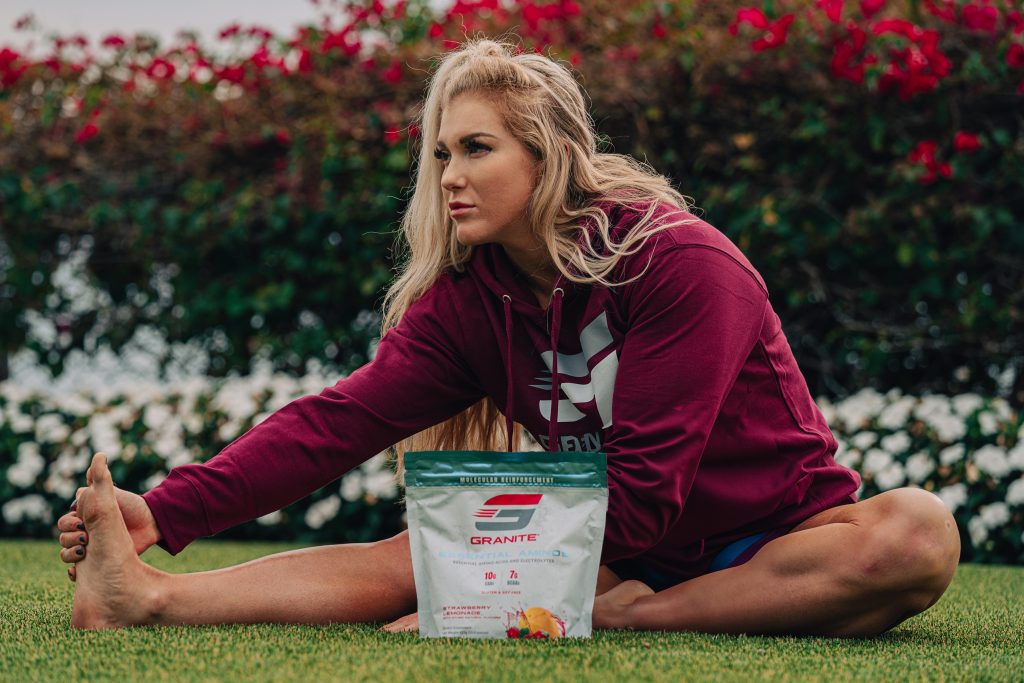Granite Athletes, Supplements
The 411 on EAAS & BCAAs: Do you need them?
With so much information on supplements out there, it can be hard to decipher what you actually need. I strive to provide people with valuable information so they can make the decision for themselves. With a quick internet search you will find yourself overwhelmed with conflicting opinions and multiple studies. Studies of which probably don’t pertain to your living habits. Read on for a quick overview and then you decide if you need them.
First and foremost, you need amino acids to survive. Amino acids are the basic building blocks of proteins, and they serve as the nitrogenous backbones for compounds like neurotransmitters and hormones. Your body needs 20 different amino acids to function properly and if trying to grow muscle, they become even more of a need. While all 20 of these are important for your health, only 9 are classified as essential (list below). In simpler terms, your body needs them to function and it’s like putting gas in a car.
What are the 9 essential amino acids?
- Histidine
- Isoleucine
- Leucin
- lysine
- Methionine
- Phenylalanine
- Threonine
- Tryptophan
- Valine
Where do amino acids come from?
The food we eat, aka the gas we put in our car so it can run! Whole foods that contain 9 essential amino acids AKA complete proteins that we learned about from the food pyramid are:
- meat/poultry/seafood
- eggs
- dairy products
- whey protein powder
If you’re vegan it becomes harder to obtain these complete proteins but the most common sources include:
- chia seeds
- quinoa
- buckwheat
- hemp seeds
- certain protein powders (Granite does have a complete plant protein powder)
Notice this list doesn’t list EAAs or BCAAs powder on there. So, how do you know if you need them?
The” recommended daily allowance” for every 2.2 pounds of body for the 9 essential aminos are:
- Histidine: 14 milligrams
- Isoleucine: 19 milligrams
- Leucine: 42 milligrams
- Lysine: 38 milligrams
- Methionine: 19 milligrams
- Phenylalanine: 33 milligrams
- Threonine: 20 milligrams
- Tryptophan: 5 milligrams
- Valine: 24 milligrams
But wait, most people don’t know how or where to begin calculating that. In the simplest of terms, if you are a regular “lifestyle” person and eat 3-4 well balanced meals per day, aren’t training for longer than an hour 4x per week and are sedentary for most of the day, you (most likely) do not need additional supplements.
However, if you’re an athlete or committed to putting on lean muscle and increasing strength/endurance, EAAs can be beneficial. Supplementing with EAAs before/during training will increase your body’s anabolic response to the stimulus you’re providing it with. In simpler terms, this increases your ability to build muscle and recover.
The only time I ever have lifestyle clients consume additional supplemented EAAs is if:
- they are training in a fasted state (to continue any fat oxidation you will get from a lack of glucose utilization)
- they are in a caloric deficit (this means adherence to deficit not just once in awhile)
- they do not have time to eat a meal after training (not optimal)
BCAAs vs EAAs?
In my opinion, this is where it gets the most confusing and where health and fitness marketing tactics take over the consumer’s mind.
BCAAs,are made up of three EAAs:
- Leucine
- Isoleucine
- valine.
As you can see, BCAA supplements contain 3 or the 9 EAAs.
Granite supplements EAAs provide all 9 of the essential aminos (10 total) as well as electrolytes.
If you would consider yourself moving closer to the “advanced” athlete, I would try 1 scoop intra and see if you notice better performance and increased recovery. Essential Aminos – Granite Supplements
We would love to hear your experience and if you’ve tried EAAs. Feel free to share via social media and tag @GraniteSupplements and @B_Dimez.




